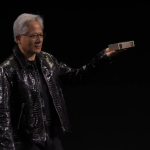WHO takes this opportunity to remind Member States that are Parties to the WHO Framework Convention of Tobacco Control (FCTC) of their obligations under the Convention. Heated tobacco products are tobacco products, meaning that the WHO FCTC fully applies to these products. (Decision FCTC/COP8(22)) Specifically, Article 13.4(a) obliges Parties, to prohibit “all forms of tobacco advertising, promotion and sponsorship that promote a tobacco product by any means that are false, misleading or deceptive or likely to create an erroneous impression about its characteristics, health effects, hazards or emissions.”
WHO reiterates that reducing exposure to harmful chemicals in Heated Tobacco Products (HTPs) does not render them harmless, nor does it translate to reduced risk to human health. Indeed, some toxins are present at higher levels in HTP aerosols than in conventional cigarette smoke, and there are some additional toxins present in HTP aerosols that are not present in conventional cigarette smoke. The health implications of exposure to these are unknown.
On 7 July 2020, the US FDA authorized the marketing of a heated tobacco product, the IQOS Tobacco Heating System, under the Federal Food, Drug and Cosmetic Act. This Act requires pre-market authorization of new tobacco products before they can be placed on the US market.
The US FDA statement noted that, “Even with this action, these products are not safe nor “FDA approved“. The exposure modification orders also do not permit the company to make any other modified risk claims or any express or implied statements that convey or could mislead consumers into believing that the products are endorsed or approved by the FDA, or that the FDA deems the products to be safe for use by consumers.”
The US FDA authorization rejected claims that the use of the product is less harmful than another tobacco product or reduces risks to health. The FDA orders also require the company to monitor youth awareness and use of the products to help ensure that the marketing of the MRTPs does not have unintended consequences for youth use. The company must also keep the FDA apprised of efforts to prevent youth access and exposure.
Given that health may be affected by exposure to additional toxins when using HTPs, claims that HTPS reduce exposure to harmful chemicals relative to conventional cigarettes may be misleading.
Moreover, the relevant orders grant a temporary market authorization within the US and are based on factors specific to the US, which is not a Party to the WHO Framework Convention on Tobacco Control (WHO FCTC).
All tobacco products pose risks to health and WHO urges full implementation of the WHO FCTC. Rigorous implementation will support quit attempts and reduce initiation by non-users of tobacco products, especially the young. WHO recommends cessation of all tobacco use with interventions, such as brief advice from health professionals, national toll-free quit lines, nicotine replacement therapies and cessation interventions delivered via mobile text messaging.
Powered by WPeMatico




